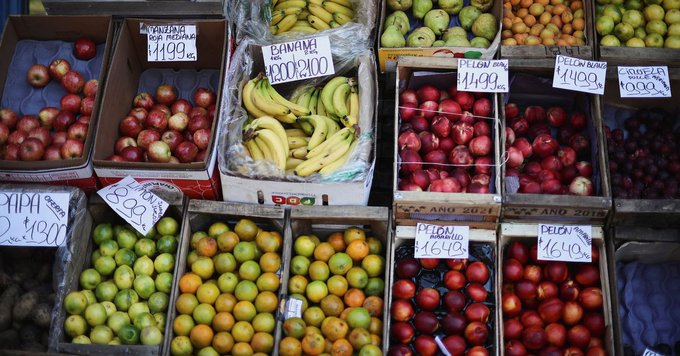According to Argentina’s Indec, the CPI in May was 4.2%.
Minister Caputo declared his satisfaction with again another success in reducing inflation.
Therefore, May’s numbers were the lowest since January 2022 and less than half of April’s 8.8%. Healthcare had the lowest monthly increase (0.7%) and Communication had the largest (8.2%) monthly increase.
Nonetheless, considering the steep rise in utilities subsequent to the elimination of State subsidies, a minor recovery is anticipated in the upcoming months.
According to Economy Minister Luis Toto Caputo, this “drop is fundamental for the recovery, this generates a normalcy that you have not seen in Argentina for a long time.”
Education ranked seventh (5.6%), followed by tobacco and alcoholic beverages (6.7%) and food and non-alcoholic beverages (4.8%). The rise in vegetables, tubers and legumes, milk and dairy products, eggs, oils, fats, and butter was the main driver of these categories. Fuels and electricity increased by 2.5 percent.
Based on projections from prominent economists, the Central Bank’s (BCRA) Market Expectations Outlook (Relevamiento de Expectativas de Mercado – REM) predicted that May’s inflation would reach 5.2% for a total of 146.4% by the end of the year, which was an improvement over the previous month’s forecast of 161.3%.
The City of Buenos Aires’ official index, which typically predicts national statistics, was found to have dropped to 4.4% in May—the lowest level since February 2022—resulting in an interannual figure of 280.9% last week.
The steep devaluation of the Argentine peso following the Libertarian takeover in December 2023 led to a severe recession and decreased spending, which was compensated for by Thursday’s Indec data.
The International Monetary Fund (IMF) approved a US$ 800 million disbursement to “support the efforts of the authorities to strengthen the process of disinflation, rebuild fiscal and external reserves, and shore up the recovery” in this scenario, stating that Argentina was “on track” after meeting all goals for the first quarter of 2024.
However, the IMF issued a warning, saying that “improving the quality of fiscal adjustment, taking the first steps towards an improved monetary and exchange rate policy framework, and implementing reforms to unlock growth, formal employment, and investment are necessary to maintain progress.”
Concurrently, an extension of a US$ 5 billion currency exchange with China was approved, sparing Buenos Aires from maturities that were scheduled for this month and the following.







